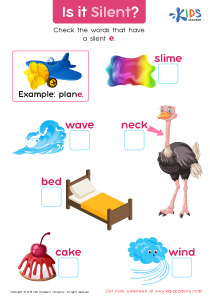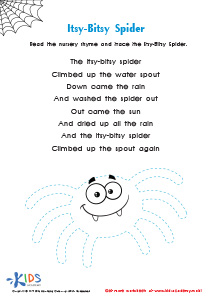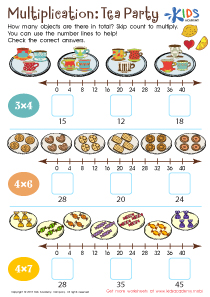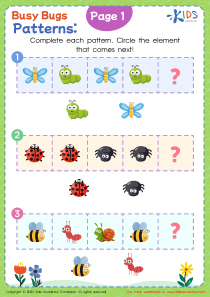Logic and Early Math Lessons for 4-Year-Olds
100 results
Dive into the fascinating world of numbers and reasoning with our "Logic and Early Math for 4-Year-Olds" program! Designed specifically for young learners, this course introduces the fundamentals of logic and early math concepts through a blend of interactive worksheets, engaging educational videos, and fun assessment quizzes. Watch your child's confidence and skills grow as they explore patterns, shapes, and basic problem-solving. Tailored for the curious minds of 4-year-olds, our lessons strike the perfect balance between learning and play. Join us on this exciting journey to lay a solid foundation for your child's future success in math and beyond!
Unlocking the Potential: The Power of Logic and Early Math for 4-Year-Olds
In the formative years of childhood, every new learning experience can be an exciting adventure, laying down the foundational stones for future academic success and intellectual curiosity. Among these foundational elements, Logic and Early Math for 4-Year-Olds stand out as critical pillars. These lessons, crafted with the unique developmental needs of young learners in mind, are more than just an introduction to numbers and patterns; they are a gateway to unlocking the boundless potential within each child.
The significance of Logic and Early Math cannot be overstated. At the tender age of 4, children are at a crucial cognitive development stage, where their minds are incredibly receptive to new concepts and ideas. By engaging in interactive worksheets, educational videos, and assessment quizzes designed specifically for their age group, children can develop a strong foundation in logical thinking and basic mathematical concepts. These tools and resources not only make learning fun and engaging but also cater to the varied learning styles of young learners, ensuring that each child can benefit from the lessons.
The interactive worksheets are a core component of the curriculum, providing a hands-on learning experience that promotes active engagement. Through these worksheets, children learn to identify patterns, solve simple puzzles, and understand basic math concepts such as numbers, shapes, and measurements. The tactile nature of these activities enhances fine motor skills and encourages children to explore and interact with the material in a meaningful way.
Educational videos further enrich the learning experience, offering visual and auditory stimuli that captivate young minds. These videos often feature characters and stories that children can relate to, making abstract concepts more accessible and understandable. By seeing math and logic concepts brought to life, children can connect what they learn to the world around them, fostering a sense of curiosity and a desire to explore further.
Assessment quizzes, though simple and age-appropriate, play a crucial role in reinforcing the concepts learned. These quizzes provide immediate feedback, helping children and their educators understand areas of strength and opportunities for further development. Importantly, these assessments are designed to be engaging and encouraging, ensuring that children view them as an enjoyable challenge rather than a daunting task.




















